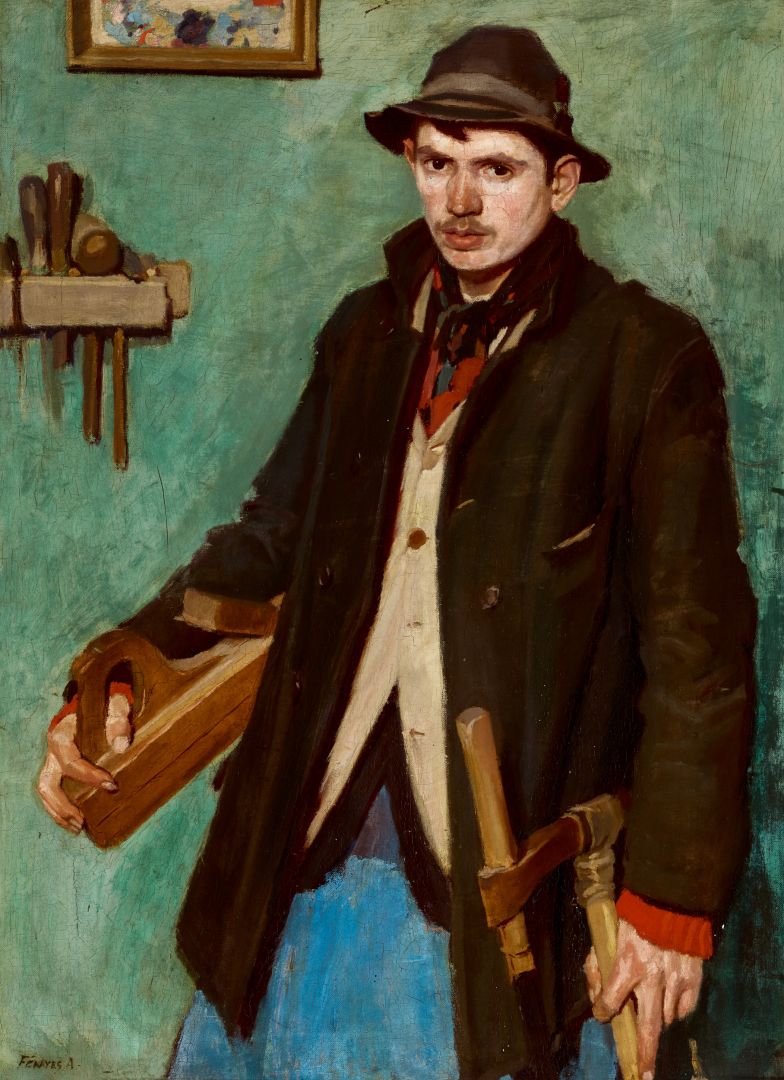Hall 2 - 5. view
Carpenter
FÉNYES, ADOLF (1867–1945)
Carpenter, 1905
oil on canvas, 110x80 cm; marking in the lower left: Fényes A.
Fine Arts Collection, Inv. No.: 53.247.1.
This suggestive portrait represent the early period of Adolf Fényes. It is the last piece of the cycle titled ‘The life of a beggar’, which he began in 1898 and worked on for seven years. The Carpenter has all the characteristic features of this series, however its more colourful palette also hints towards the next creative period of the painter. The painting, which is full of sympathy and compassion for its subject, depicts the figure of a young man with the tools of his trade shown both in his hands and hanging on the wall behind him.
Traditionally, given the genre of portrait paintings, only the more prestigious members of society could afford to have large, representative depictions of themselves. Here however, in a revolutionary move, the painter intended to shift that focus away from them and put the focus on nameless everyday heroes. Fényes said the following about his artworks, which depict characters from the lower classes society in a state of calm as they sat down as models for him: ‘I paint primarily as a human being, not as an artist. The social perspective always interested me more than the artistic angle. I thought that by showcasing this sad world to the wealthier, exhibition-attending audiences, it might shake their conscience’.
The democratic-minded artist was a vocal proponent of travelling exhibitions, which were organized to boost the artistic scene in rural Hungary and to improve public taste. There were two travelling exhibitions in Northern Hungary in 1906 and 1910. These were organized by Bertalan Balogh from Miskolc and visited seven towns in total, making both major undertakings of this period. Among many artists, Adolf Fényes also lent his artworks for both exhibits. The Carpenter was purchased by the museum in 1906, following the exhibition held in Miskolc. It was one of the first, truly outstanding additions to its collection.
Andrea Pirint
